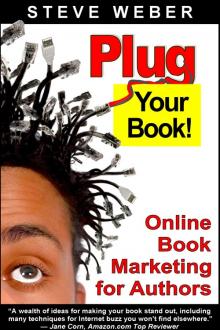A-Void, Babak Govan [best smutty novels .TXT] 📗

- Author: Babak Govan
Book online «A-Void, Babak Govan [best smutty novels .TXT] 📗». Author Babak Govan
Our own death is indeed quite unimaginable, and whenever we make the attempt to imagine it we … really survive as spectators.… [A]t bottom nobody believes in his own death, or to put the same thing in a different way, in the unconscious every one of us is convinced of his own immortality.
Look in the mirror, and don’t be tempted to equate transient domination with either intrinsic superiority or prospects for extended survival.
J. Huxley, “Transhumanism,” From In New Bottles for New Wine, 1957.
The first thing that the human species has to do … is to explore human nature, to find out what are the possibilities open to it (including … its limitations).… This process too will begin by being unpleasant, and end by being beneficent.
J. Dollard, L.W. Doob, N.E. Miller, O.H. Mowrer, and R.R. Sears, Frustration and Aggression, 1939.
“Does Stress Damage the Brain?” J.D. Bremner, Biological Psychiatry, 1999.
F. Fanon, Black Skin, White Masks, translated by C.L. Markmann, 1965.
K. Kelly, Out of Control: The New Biology of Machines, Social Systems, and the Economic World, 1994.
W.R. Ashby, Introduction to Cybernetics, 1956.
Our own death is indeed quite unimaginable, and whenever we make the attempt to imagine it we … really survive as spectators.… [A]t bottom nobody believes in his own death, or to put the same thing in a different way, in the unconscious every one of us is convinced of his own immortality.
S.J. Gould, Full House, 1996.
S.A. Rathus, Essentials of Psychology, sixth edition, 2001.
In so doing, they force their fantasies on the exhaustive history of the Universe. Amazing discoveries of extinct Homo species barely make the news headlines, even when it is likely that at least one such cousin lived among us until the 1800s before existing no longer. In such grandiosity, most Violent Humans are unaware that our species may not have arisen if not for an extraterrestrial body colliding with Earth. Its plume exterminated the dinosaurs and allowed for this speciation.
“The true way of looking at things is ‘multiplicity’.… Each point of view differs from every other; and all are valid.… What I want to do is to look with all those eyes at once.” From F.J. Hoffman, Aldous Huxley and the Novel of Ideas, 1946.
But if we consider culture as … a system with its own … pressure to survive … memes can quickly accumulate their own agenda … the primitive drive to reproduce itself and modify its environment to aid its spread.
“An Interview with Stephen J. Gould,” N.A. Campbell, Biology, 1993.
The concept of selective attention is important to self-control.… To keep your car on the road, you must pay more attention to driving conditions than to your hunger pangs.… Adaptation to our environment involves learning which stimuli must be attended to and which ones can be safely ignored.
Frantz Fanon termed the pathology that we ascribe to persons when it is their society that is ill, “sociogeny.” It is the practitioner, and not the patient, who is ill.
Those who adapt to environmental changes survive. To adapt, we must possess more variety than does our environment. Thus, the Law of Requisite Variety states, “[O]nly variety … can destroy variety.”
“The Human Pedigree,” V. Deak, Scientific American, January 2009.
What happens when there is no time to remember? Whereas we remember sounds for up to four seconds, we remember images for about half a second, and the hippocampus—our memory center—absorbs only the information to which we attend. The fact that the preliminary memory banks of the brain hold only minute amounts of information simultaneously is another limiting factor. Unless there is repeated rehearsal of this information—to learn it—it fades from your memory within seconds. The loss of learning is not an isolated loss. Prolonged stress could actually kill brain cells.
“A Dual-Process Model of Defense Against Conscious and Unconscious Death-Related Thoughts: An Extension of Terror Management Theory,” J. Pyszczynski, J. Greenberg, and S. Solomon, Psychological Review, 1999.
The Violent Humans spare no behaviors in their quest for self-enhancement, from subconsciously preferring the letters of their own names to plastic surgery. For most, success is their doing, whereas they blame failures on others or on their circumstances; for others, the opposite is true. They pay more attention to information that supports their own views than information that disputes it.
Leaning against a gray brick building in Government Square, I imprint my fingertips into The Zeitgeist, grieving my innocent belief that Jasmine and I would live together in New Jamestown.
I study the dirt under my nails and with my tongue feel the rough insides of my cheeks, maybe from the acid in my mouth. My heart trembles now for Cleveland, and yet I wonder if it matters to see him. I see years into the future, from distant galaxies, alien explorers descending on Earth and discovering the empty skeleton of human civilization. Buildings crumble, those above decorating those below with their rubble and dust, among the intense weeds that, in our extinction, bloom like algae and bury our houses in graves.
Standing atop the banquette, shadowed by clouds, water drips down from the tip of my nose and into the great abyss. I think I see Cleveland still sitting in the middle of the grassy field. “Cleveland?” I hear no response. I begin my descent.
“There are two types of people in this world, producers and consumers,” I remember telling Chang.
“What do you mean?”
“One group of people sees the world in black and white, as good or evil, no different from a fairy-tale. They don’t think about the validity of what they believe or say. If you attempt to discuss something important, they give you





Comments (0)